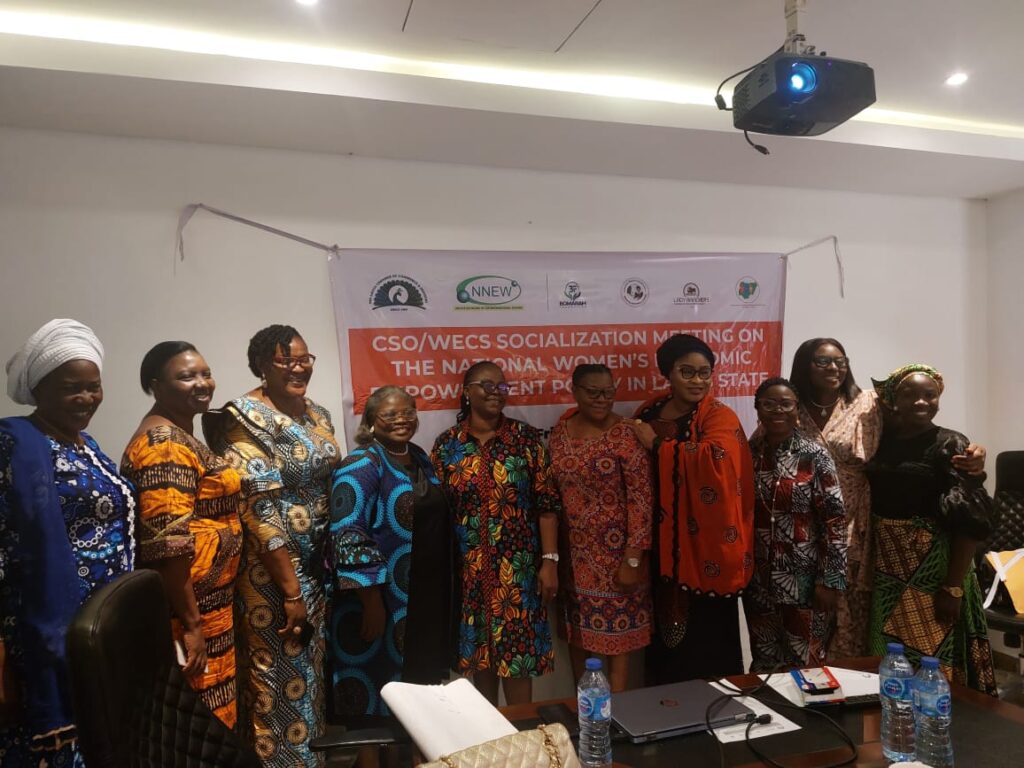

Some women-focused civil society organisations (CSOs) are calling for the domestication of the National Women Economic Empowerment (WEE) Policy and Action Plan by state governments across Nigeria.
The organisations made the call on Friday at a one-day policy socialisation workshop organised in Lagos by the Development Research Project Centre (dRPC) to discuss and review the WEE policy.
Participants commended the Lagos State Government for setting up a committee to domesticate the policy, stressing the need for domestication of the policy to achieve Sustainable Development Goal 5 towards achieving gender equality and the empowerment of all women and girls.
WEE was launched in 2023 to streamline all gender policies and address the disparities women face in accessing financial benefits and opportunities across sectors.
The workshop had participants from the Lagos Chamber of Commerce and Industry (LCCI) Women’s Group, NECA Women Entrepreneurs Network, Champion Women Entrepreneurs Mentoring Association (CWEMA), Anchor Co-op Association and Bomala Foundation.
According to Kehinde Omojola, a consultant to DRPC, the essence of policy socialisation is to address gaps in policies being formulated at the national level without educating and engaging civil society and private sector stakeholders at the state level.
Omojola said a process of policy socialisation was necessary to complement the state government’s policy domestication efforts.
Financial support promotion article page
PREMIUM TIMES delivers fact-based journalism by Nigerians, for Nigerians, and we are dependent on the support of our readers to contribute. Help us provide you and millions of others with thoroughly researched, in-depth news and information.
It is important to recognise that producing news costs money, and we pride ourselves on never making news stories into exorbitant pay-per-view content.
Will you help support our newsroom with a small donation to help sustain our commitment to providing free, accessible news?
Yes, donate today x Donate later
She also stressed the need for stakeholder engagement and participation of rural women in government policy formulation.
She noted that according to a 2017 report by the Global Women’s Banking Alliance, the non-performing loan rate for small businesses owned or led by women is just 2.7 percent, 33 percent lower than the rate for men.
“The policy gives guidelines, tells us who is responsible for what, what needs to be done and in some cases even how to do it,” she said.
“With the right policies in place, we are now more intentional going forward and set ourselves up for success.”
Omojola said key components of the policy include agriculture, entrepreneurship, traditional labour market, emerging industries, education and skills acquisition, while cross-cutting components of the policy include Women Financial Inclusion (WFI) and literacy, digital innovation, literacy and access.
He said the overarching objective of the policy is for Nigeria to be among the top 90 countries on the World Economic Forum (WEF) Global Gender Gap Index by 2028, and for Nigeria to be among the top 40 countries on the Economic Participation and Opportunity sub-index of the WEF Global Gender Gap Index by 2028.
On women’s economic participation, Omojola said the target was to increase Nigeria’s female workforce participation rate from 55 percent to at least 65 percent by 2028.
She said another goal was to increase the share of women in the agricultural workforce from 19.6 percent to at least 30 percent by 2028.
According to Omojola, existing gaps and challenges that justify the need for a WEE policy include limited funding, poor databases, social barriers and technical capacity bottlenecks.
On limited funding, the Chairperson of Lady Ranchers, Mrs Adeloju Odunsi, said the challenge was lack of awareness on funding initiatives.
Odunsi suggested that under structural evolution and innovation, the Ministry of Trade and Investment should be among the lead MDAs to raise awareness and information for underserved women on how they can seize and access opportunities for self-reliance.
Another participant, Ms Oduwei from the LCCI Women Group, suggested that from an entrepreneurial perspective, commercial and industrial banks should be involved in disbursing funds.
Market Leader, Mile 12 Market, Precious Ojo also noted that women’s financial and digital literacy is paramount to the success of any business programme or government intervention.
At PREMIUM TIMES, we strongly believe in the importance of quality journalism. Realising that not everyone can afford high news subscription fees, we are committed to delivering rigorously researched, fact-checked news freely accessible to all.
Whether you rely on Premium Times for daily updates, in-depth investigations on pressing national issues or hot topics and entertaining stories, we value our readers.
It is important to recognise that producing news costs money, and we pride ourselves on never making news stories into exorbitant pay-per-view content.
Can you help us sustain our commitment to providing free, accessible news with a small monthly donation?
Contribute
Text Ad: Call Willie – +2348098788999
Tara Thomas Agency stands at the forefront of the entertainment industry, with years of experience dedicated to nurturing the most exceptional talents and successful acts.